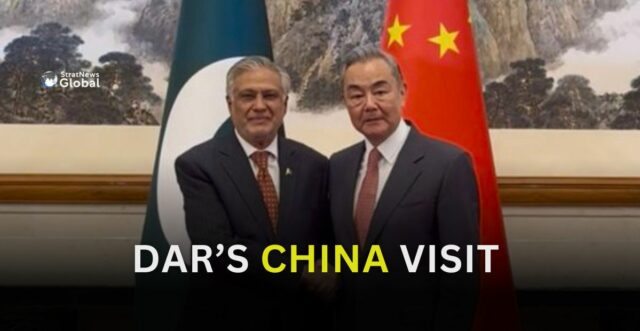The picture said it all: the winsome threesome of Pakistan’s foreign minister Ishaq Dar, his Chinese counterpart Wang Yi and Afghanistan’s Amir Khan Muttaqi, captured holding hands in Beijing. And on X Dar posted: “Pakistan, China and Afghanistan stand together for regional peace, stabilitiy and development.”
Reports said the three leaders agreed to deepen cooperation on the BRI (Belt & Road Initiative) and extend the CPEC (China Pak Economic Corridor) to Afghanistan.
This would deepen China’s strategic footprint, safeguard investments and explore resource extraction opportunities in Afghanistan’s mineral-rich regions. For this to happen, it must ensure a careful balance in its ties with Islamabad and Kabul.
The million dollar question in India is whether Wang Yi tried to get the Taliban leader to rein in the Tehreek-e-Taliban, which is now engaged in a mini-war against Pakistan. At this point there is no word from Kabul.
Coming shortly after Operation Sindoor, conventional wisdom also suggests Dar’s visit is about Pakistan seeking to shore up support from “Iron Brother” China.
“There is nothing that tells us that this was a pre-planned visit. It seems like something that was last minute and, to me, it’s a product of what’s happened between India and Pakistan over the past month,” said Manoj Kewalramani, who heads the China studies programme at the Takshashila Institution, a think tank.
Kewalramani bases his argument on the fact that the announcement of Dar’s trip came just a day before his departure, suggesting it was a last-minute decision. It could even be part of a broader Chinese effort to manage the aftermath of the conflict.
While no major announcements were made, it’s taken for granted that military coordination continues at other levels within the defense and intelligence establishments. But the visit saw China underscore how it saw itself in the region.
“We are willing to maintain communication with both sides and play a constructive role in realising a full and lasting ceasefire and maintaining regional peace and stability,” was the statement from China’s foreign ministry spokesman Mao Ning.
India is unlikely to be impressed given the long standing China-Pakistan nexus and its position as Islamabad’s principal arms supplier.
Kewalramani noted: “The aim of Beijing is to use Pakistan to try and contain India within the subcontinent and particularly keep India insecure from a territorial security perspective.”
In fact, Chinese media including Xinhua, have portrayed Pakistan as a victim of Indian aggression, while downplaying the terrorism angle associated with the Pahalgam attack. It reinforces China’s strategy of using Pakistan as a counterbalance to India.





